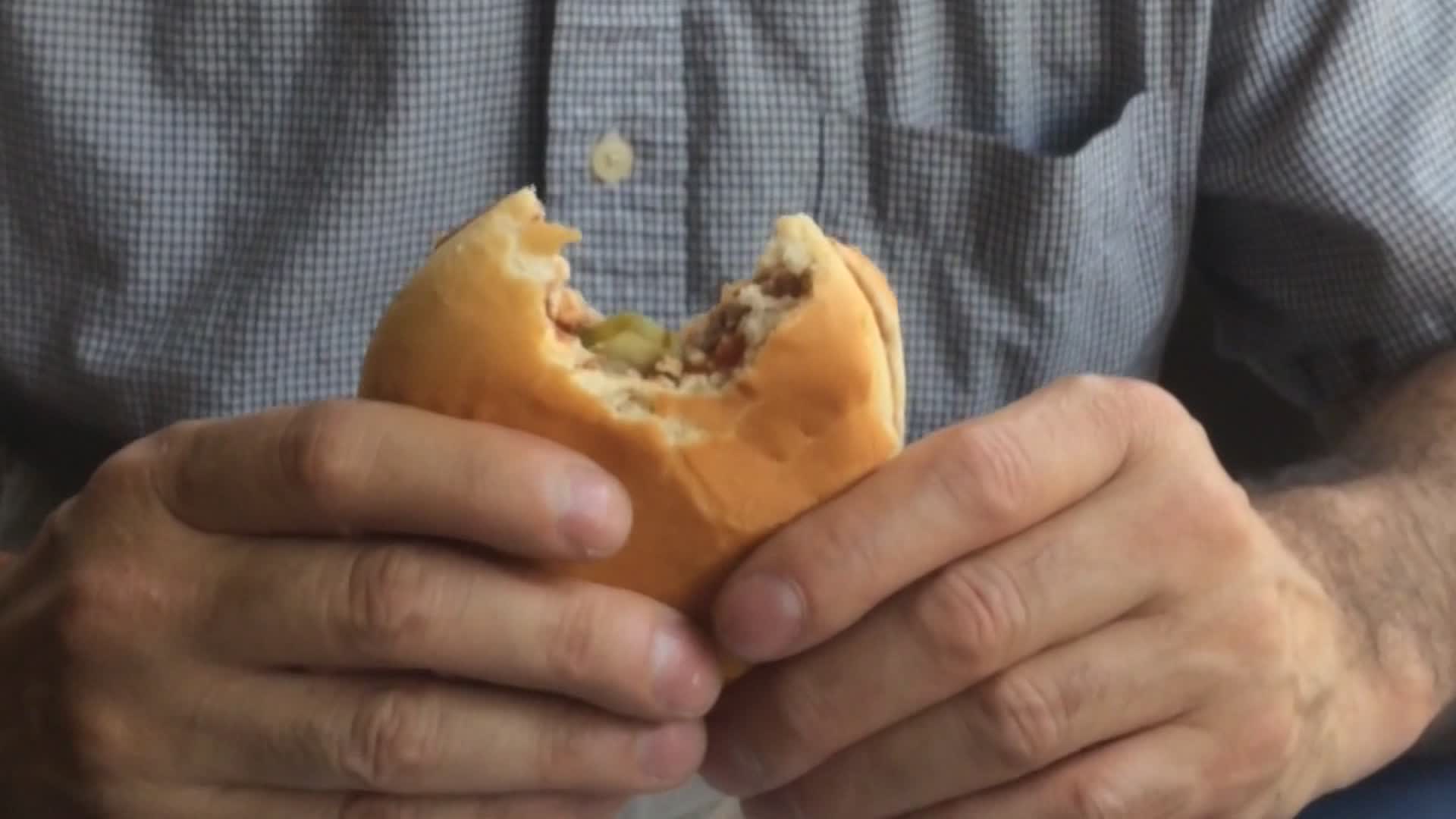Residents in a Southern California desert community said Thursday they were going to fortify their homes to protect against the so-called "Pillowcase Rapist," who was released into the neighborhood this week.
Sharon Duvernay said she added some lighting to the rear of the house. The lights go on automatically after dark.
- Updates: Download the NBCLA News App
The chain link fences, which used to only divide her yard and garden, have now become something different.
"We're also going to put razor wire on our fencing," she said. "Everywhere."
The moves come after Christopher Hubbart, who admitted raping 40 women between 1971 and 1982, was released into Lake Los Angeles, which is about 70 miles northeast of downtown Los Angeles.
Cheryl Holbrook, who lives six miles from Hubbart’s home, has noise-activated cameras.
"I can see who's coming in, front and back," Holbrook said. "I just added another one."
Outside Hubbart's tiny home, the noisy vigil continues.
But residents said they're not waiting around for something to happen.
"I don't want to see him get hurt," Duvernay said. "He should be in a place where he's going to be safe. We should be in a place where we're safe."
The release of Hubbart came despite impassioned pleas from residents and elected officials who objected to his release from Coalinga State Hospital.
Los Angeles County District Attorney Jackie Lacey and Supervisor Mike Antonovich were among those balking at Hubbart's release to a home at 20315 East Avenue R.
"We took every legal action at our disposal to try to stop his return to our community. Now, we are preparing for his arrival ... We will do everything within our authority to protect the residents of Los Angeles County from this dangerous predator," Lacey said in May.
California
News from across California
Lacey said then that "many safety precautions" would be in place, including a requirement that Hubbart wear a GPS ankle monitor 24 hours a day, seven days a week.
He will be taken twice a week to group and individual therapy sessions, and a program supervisor will accompany him whenever he goes out in public for the first six months to a year following his release.
Hubbart also will be required to report to a judge in San Jose for quarterly reports on his progress.
A judge who ruled in April that Hubbart would live at the Palmdale-area home wasn't swayed by the 4,000-plus letters, emails and postcards that the District Attorney's Office received in opposition to the move.
California law requires that a sexually violent predator be conditionally released to the county of his or her domicile "prior to the person's incarceration," and Los Angeles County prosecutors argued that Hubbart lived in Santa Clara County in the years leading to his last arrest and no longer has family living in Los Angeles County, where he grew up.
City News Service contributed to this report.



